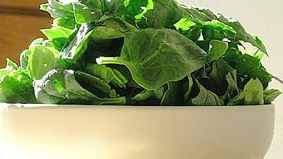When it comes to diet and menopause, eating healthy is key.
Foods That Harm Foods That Heal is a comprehensive volume compiled by the editors of Readers Digest providing an exhaustive list of health and wellness choices directly related to what foods harm and what foods heal our bodies. With the growing awareness of the importance of healthy eating for baby boomers, organic and sustainable gardening and the overabundance of information coming at us daily from every direction, this is a valuably concise and helpful book.
This volume is in three sections:
Section I deals with nutrition: Carbohydrates, fats, proteins, antioxidants and vitamins and minerals. Food safety, how much to eat, how to prepare, cook, and store foods safely for optimum nutrition.
Section II is the meat of the book (no pun intended!) This detailed guide to foods that harm and foods that heal covers everything from acorn squash to zucchini. Each food is reviewed for its unique properties, the benefits and risks for each food are noted, along with eating, buying and storing tips.
Section III is unceremoniously titled “Ailments”, exploring what foods harm and what foods heal a laundry list of conditions.
Nutrition and food facts are pretty basic, of course, but the focus of this book is information – providing the reader with what they need to know in order to evaluate and make the best and worst choices for treating ailments naturally. Health benefits are noted, touching on the preventative properties of each food. There is information on how they may help other conditions by way of aiding in weight loss, digestive health, and any supportive benefits they offer in reducing the risk of certain cancers and heart disease. Health and wellness is the key here, no unsupportable claims or magic bullets for foods that can heal illness.
Some neat stuff – a couple of examples:
- Asparagus can slow the aging process (p.44)
- Brussels Sprouts can help ward off macular degeneration (p. 62)
- Cherries are often recommended by alternative health practitioners to treat gout (p.76)
- A University of Arizona study revealed that seniors who drank 12 ounces of caffeinated coffee each day retained their memory better than those who drank decaf (p.309)
One of the best things I like about this book is the format. Each section and every page is clearly laid out, with easy-to-read text, consistent title styles throughout the pages, and snippets of relevant information highlighted. Images are clean and attractive.
This book is by no means a barn burner, but it is a great resource for busy men and women in midlife who want to know more about the relationship between foods that heal and foods that can harm us. This is a great book to keep on your kitchen shelf.
Winsome To Wisdom is a participant in the Amazon Services LLC Associates Program, an affiliate advertising program designed to provide a means for sites to earn advertising fees by advertising and linking to Amazon.com


